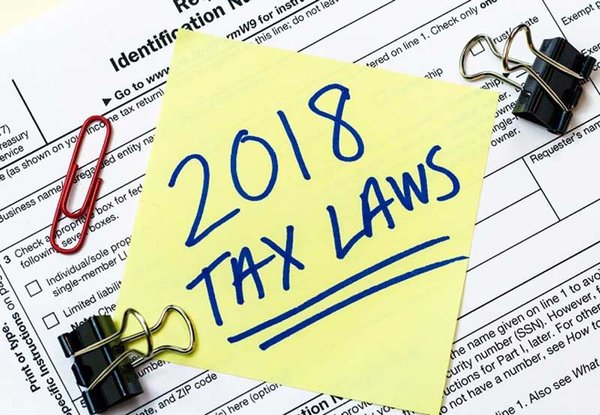
The Kenyan Income Tax Act was enacted on January 1, 1974, which is approximately 44 years ago.
During this period, the Income Tax Act has been amended numerous times through the various finance acts so as to address changes in governance, business and tax administration practices.
Despite the well-meaning intentions of these amendments, the Income Tax Act has become complex and unresponsive to taxpayer issues.
Taxpayers in response, through various forums, raised issues such as the high tax rates for businesses, inadequate tax incentives for business owners, use of information technology, the lack of participation by all Kenyans in taxation, which they wanted to be addressed.
It is the need to address these issues that, the Government in the 2016-2017 budget committed to reviewing the Income Tax Act.
The new Income Tax Act was to widen the tax base, be adaptable to the business environment and match international best practices. It is in light of this that the Government through the National Treasury in May published the draft Income Tax Bill, 2018 and sent it out to the public for comments before tabling it before Parliament. The Government through its fiscal policy is able to influence the economy. Through the Bill, the Government signals what it considers important as well as sharing its roadmap for the next fiscal year.
No notable improvements
The Bill comes at a time when President Uhuru Kenyatta has set out four key pillars (Big Four) he would like to achieve before his term in office is over which are affordable housing, food security, manufacturing and affordable healthcare for all.
It has been argued that the Big Four agenda is responsive to the issues affecting Kenyans on a daily basis and as such, lawmakers must ensure the Income Tax Bill and the expected Income Tax Act are responsive as well.
Healthcare in Kenya has recently improved largely due to Government efforts at improving healthcare facilities, affordable medicine, medical services and equipment.
Still, Kenyans feel that whereas they can access some of the healthcare programmes rolled out, they still remain unaffordable.
The Bill provides an investment allowance to healthcare providers who incur capital expenditure on hospital buildings. It is in light of this that the National Hospital Insurance Fund (NHIF) was exempted from taxation.
However, there were no notable improvements in terms of medical insurance incentives to contributors.
The Bill should increase the amount of medical insurance deductible for business owners as well as make contributions to NHIF and medical insurance premiums paid by the employee tax deductible on their income.
Stay informed. Subscribe to our newsletter
To ensure the goal of affordable healthcare is achievable, the Government has created Special Economic Zones (SEZs) both in the SEZ Act and the Income Tax Act.
The Bill provides for the SEZs where companies who set up operations will enjoy a reduced tax rate of 10 per cent for the first 10 years and 15 per cent for the next 10 years. It is through this avenue that pharmaceutical companies can set up and enjoy the reduced tax rates which are expected to create employment and reduce the cost of medicine.
Manufacturing is seen as the ticket to ensure Kenya becomes a developed economy. With manufacturing the country’s Gross Domestic Product increases, resulting in more job opportunities, higher income and better livelihoods for all Kenyans.
Future manufacturers
However, the rate at which manufacturing companies in Kenya are closing down or shifting their operations to other locations is worrying and some action needs to be taken.
These manufacturers keep citing the high cost of doing business in Kenya, attributing it to the high cost of labour and power.
In the Bill, companies engaging graduate apprentices for a period of between six to 12 months are entitled to a tax deduction equal to 150 per cent of the emoluments paid to the university graduates.
This is a progressive provision which allows for the transfer of knowledge. However, this leaves out graduates from technical and vocational education and training centres who supply a large portion of the workforce in the manufacturing industry.
This proposal will encourage manufacturers to hire apprentices and pass on key skills to the country’s future manufacturers.
The Bill also proposes to rescind the previous investment deduction allowance previously available to manufactures who set up companies outside Nairobi, Mombasa and Kisumu from 150 per cent to 100 per cent.
Whereas the reduction normalises and ensures uniformity, this was a key incentive which allowed investors to consider setting up outside these areas. In my view, the incentive should remain in the Income Tax Act.
Michael Ichura is Consultant at EY. The views expressed in the article are not necessarily those of EY.
 The Standard Group Plc is a
multi-media organization with investments in media platforms spanning newspaper
print operations, television, radio broadcasting, digital and online services. The
Standard Group is recognized as a leading multi-media house in Kenya with a key
influence in matters of national and international interest.
The Standard Group Plc is a
multi-media organization with investments in media platforms spanning newspaper
print operations, television, radio broadcasting, digital and online services. The
Standard Group is recognized as a leading multi-media house in Kenya with a key
influence in matters of national and international interest.
 The Standard Group Plc is a
multi-media organization with investments in media platforms spanning newspaper
print operations, television, radio broadcasting, digital and online services. The
Standard Group is recognized as a leading multi-media house in Kenya with a key
influence in matters of national and international interest.
The Standard Group Plc is a
multi-media organization with investments in media platforms spanning newspaper
print operations, television, radio broadcasting, digital and online services. The
Standard Group is recognized as a leading multi-media house in Kenya with a key
influence in matters of national and international interest.









